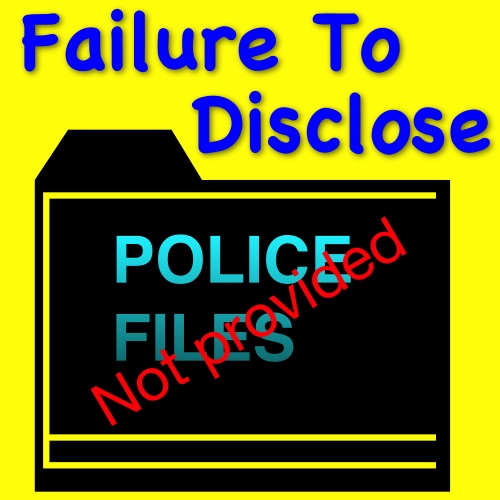Police in Tasmania are being accused of treating courts with contempt, and of not taking their obligations to disclose material to the defence seriously, barristers say.
In all criminal cases, police and the prosecutors throughout Australia have a legal obligation to provide defence lawyers with evidence or facts they know which might help the accused person get off the charge. The reason is that the Crown – police and prosecutors – have massive resources by comparison with an individual before the court.
The legal obligation on the Crown is to ensure fairness and to make appearing before a court more “equal”.
The aim is to produce justice rather than biased outcomes based on material unknown but favourable to the accused person, but known to the police and not presented in court.
However, frequently in Australia police and prosecutors break the rules by not disclosing as they should. Police and/or prosecutors are themselves guilty of Failure To Disclose (FTD), though it is not an offence that they can be charged with – yet.
In many cases, if such material is not presented to the court, it makes it more likely and/or easier for police to get a conviction.
Almost invariably, in major cases in Australia where people have been wrongly convicted and jailed for 12 to 20 years before finally winning their freedom back, police and prosecutor FTD has been part of the problem.
Well-known cases where this has happened include Mallard in WA, Keogh in SA, Eastman in ACT, etc.
Such cases include, CLA believes based on papers presented to the Tasmanian parliament, the Sue Neill-Fraser matter in Tasmania where she has not yet been cleared of a murder charge.

If FTD is common in major murder trials, on which the media spotlight falls, it is highly likely that it is even more frequent in lesser cases out of the public eye.
Recently, Tasmanian lawyers who face the FTD problem regularly before that state’s magistrates and higher courts have spoken out in Twitter exchanges:
Here is Tasmanian barrister Cameron Scott, discussing the issue of police FTD with other barristers in early March 2023:
1.
“Long story short, they have 1 person whose job it is to make disclosure in about 12000 cases each year. Tasmania Police doesn’t take disclosure seriously…
2.
“This was the message today from (TasPol) to a local solicitor chasing up a request for full disclosure: ‘Therefore all Magistrate files are on hold until further notice.’
“Summary cases are in chaos.”
3.
Fellow Tasmanian barrister Greg Barns replied: “Disgraceful.”
4.
Another barrister, Fabiano Cangelosi, described how the problem was “hidden” from the people of Tasmania, whereas magistrates wanted it publicised, and fixed by the government:
“Magistrates often remark on how police treat the court with contempt because of disclosure practices – and sadly observe that the media box* is empty, and that government still has not brought into force the Magistrates Court (Criminal & General Division) Act.”
(“media box is empty”: that is, there’s no reporter in court to inform the people when TasPol fails to live up to its obligations to disclose – ed.).
In 2023, Failure To Disclose (FTD) is one of the two* major campaigns Civil Liberties Australia is running nationally on issues that are skewing justice in Australia.
If you know where police or prosecutor FTD has allegedly caused wrongful conviction in recent cases, and it can be proven, please let us know.
BACKGROUND:
In R v Keogh (No. 2) [2015] SASC 180 at [54], Blue J summarised the position: The prosecution owes a duty to disclose to the defence on a timely basis:
(a) evidence proposed to be adduced (placed before the court – ed.) by the prosecution including the evidence of witnesses and proposed exhibits;
(b) evidence of witnesses who the prosecution does not propose to call;
(c) material that tends to reflect materially on the credibility of prosecution witnesses;
(d) material that tends to weaken the prosecution case or assist the defence case; (e) material that is relevant to an issue in the case.
– see Prosecution Policy and Guidelines, Director of Public Prosecutions Tasmania, pages 131-135, version 9 ‘Updated 18 October 2022’
2nd CAMPAIGN
* The other new campaign by CLA 2023 is the lack in Australia of a statutory forensic regulator (as in England) to ensure qualifications, standards and integrity in relation to people who claim to be forensic experts and who give evidence in courts. In all four cases named above, questionable forensic science activity was or is also seriously in question.
CLA has formally asked the federal Attorney-General, Mark Dreyfus, to establish a regulator for Australia.
ENDS

